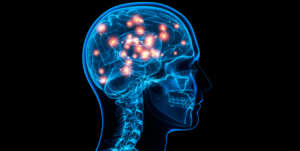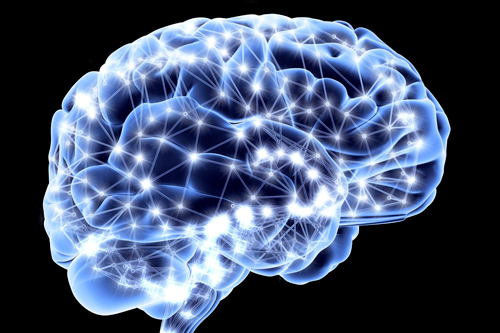“Sometimes we view technology as a source of stress, but like anything in life, it’s about finding a healthy balance. I allow technology to improve my life, while also being mindful of when I need to unplug.”
-Rose Caiola
The internet may be changing the way we think
If you’ve asked your spouse to remind you of an event or looked up a number on your cellphone, you’ve relied on transactive memory—memories stored by a collective source, human or not. In the age of the internet, availability of transactive memory has exploded to new levels, and scientists are exploring what that means for the human brain. Are we relying too much on the internet?
Is the internet destroying our memory?
A study from Yale explains that transactive memory was originally an important, symbiotic component of social relationships used to remember different types of information. But when the internet is part of a transactive memory system, people are never responsible for remembering any information.
When participants of the Yale study had access to an internet search engine, they tended to overestimate their own knowledge—unknowingly misstating they had facts beyond their own personal memory, when they were actually relying on the internet. With ever-increasing internet use, the study warns that misattribution may cause us to overcommit the extent of our independent information and abilities.
 A BBC article explains, “Part of this phenomenon is the tendency to then confuse what we really know in our personal memories, with what we have easy access to, the knowledge that is readily available in the world, or with which we are merely familiar without actually understanding in depth.”
A BBC article explains, “Part of this phenomenon is the tendency to then confuse what we really know in our personal memories, with what we have easy access to, the knowledge that is readily available in the world, or with which we are merely familiar without actually understanding in depth.”
In an interview with Rewire Me, Dasa Zeithamova Demircan, PhD and Assistant Professor of Cognitive Science at the University of Oregon, said “The danger lies in adopting the information as our own.”
If we are attributing the internet’s knowledge to ourselves through recognition, Demircan cautions, that’s the risk of relying on the internet as transactive memory. She emphasizes the difference between recognition versus recall.
It’s easy to find association or recognition of external information—for example, “I’ve seen this person before”—because we recognize the information as being familiar. Recall is the more difficult process, says Demircan. But describing what a person looked like requires complex memory tasks.
 The concepts of recognition versus recall also apply to the internet. Demircan says, “If we always look up everything on the internet, we’ll always feel that we know everything because everything will look familiar. We’ll think ‘I knew that. I knew that.’ Unless we try to recall the information first, we don’t know whether we know it or not.”
The concepts of recognition versus recall also apply to the internet. Demircan says, “If we always look up everything on the internet, we’ll always feel that we know everything because everything will look familiar. We’ll think ‘I knew that. I knew that.’ Unless we try to recall the information first, we don’t know whether we know it or not.”
Demircan watches students struggle because they recognize the information after re-reading the text multiple times. But they don’t really know the material because they can’t recall it on the test.
In a Toronto Study, people who weren’t allowed to use the internet until after they answered questions were more likely to admit it when they didn’t know the answer.
The Toronto study supports Demircan’s distinction between recognition and recall. She says, “This kind self-testing is helpful to give you a much better idea of whether you really know it or not. Just looking at the answers, over and over again, is not helpful.”
She offers a final example, “When watching a trivia game, such as Jeopardy, many people also get a feeling that they knew all the answers because they recognized it as familiar. But all the contestants can attest that being actually on the trivia game is very different than watching it at home. Now they have to recall the information on their own, which is much harder.”
Internet can assist memory

Other research has discovered ways the internet expands our recollection. One meta- study compares research of the internet’s effect on cognition, where some participants used internet tools to better organize their material instead of remembering the actual information.
Another study compared people’s ability to remember lists of facts after electronically saving the earlier lists. Leading author, Benjamin Storm PhD, concludes, “Specifically, by ensuring that certain to-be remembered information will be digitally accessible, saving can facilitate the encoding and remembering of new information.”
As indicated by the meta-study, humans have long been using transitive memory devices, such as lists and calendars, to increase their recall. The meta-study concludes, “Storm et al.’s finding is in line with the idea that human cognition can be extended via external resources (citations omitted).”
Storm told Rewire Me, “It seems to me that as cognition is extended into the digital environment we are going to increasingly find ways to take advantage of that extension.” He adds, “There may be costs associated with our increased reliance on the Internet and other digital technology, but I’d have to imagine that overall the benefits are going to outweigh those costs.”
With the overwhelming amount of information to absorb and manage in our daily lives, the internet may be changing the way we think, but perhaps—with caution—for the better.




1 Comment
Berkley ortez
Do we forget things after looking at a screen?